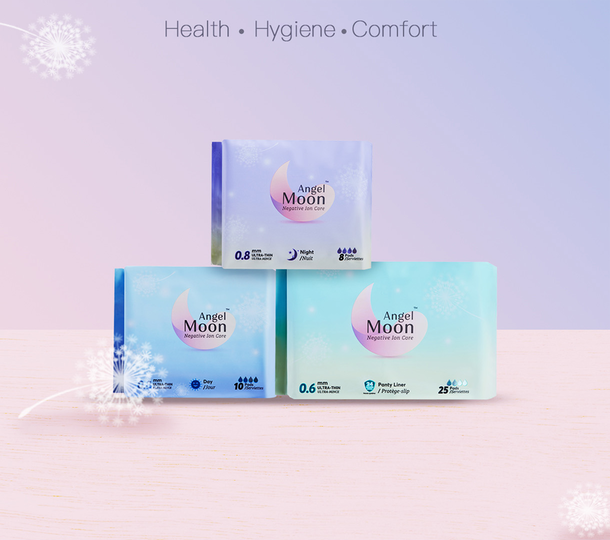
Menstruation is not a topic that is often discussed, but it is a very important topic for every female with a monthly cycle. Pads or sanitary napkin are usually pressed up against a woman’s body, specifically the skin around your vaginal area. Most of these pads and sanitary napkins contain certain stuff that you definitely don’t want near the vaginal area. The chemicals listed below could be in the sanitary napkins that most female use, Angel Moon will not include the chemicals listed below and why most women are making the switch to protect there bodies.
Dioxin
Sanitary pads are not naturally pure white. The fibers in pads are chlorine bleached to give them their clean and sterile appearance. This bleaching process creates dioxin, a highly toxic pollutant. You may think that the levels of dioxin in sanitary pads are quite low and do not pose any danger. However, dioxin accumulates in the fat stores of the body over time, and can stay there for up to 20 years. Exposure to dioxin can lead to pelvic inflammatory disease, hormone dysfunction, endometriosis, and various forms of cancer.
Rayon
Apart from cotton, rayon (synthetic fiber derived from wood pulp) is also used in your sanitary pads. Rayon is cheaper than cotton, and helps to enhance the absorption capacity of pads, but also contain dioxin from the bleaching process.
Pesticides
Conventionally grown cotton is heavily sprayed with pesticides and herbicides, and these chemicals can stay on the cotton long after it has been harvested. Side effects of exposure include infertility, hormonal disruption, thyroid malfunction, diabetes, endometriosis and depression.
Fragrances
Scented sanitary pads with odor neutralizers and other artificial fragrances contain a combination of unknown chemicals, which can enter the bloodstream and cause side effects. On the surface, they also irritate the skin, causing allergies and reactions.
Plastics
Sanitary pads often advertise themselves as leak-proof, with an impermeable plastic layer at the bottom of pads which do not allow liquid or air to pass through. The plastic traps moisture and heat, creating an environment that promotes the growth of yeast and bacteria. It can also cause sensitive individuals to experience burning, chafing and soreness.
